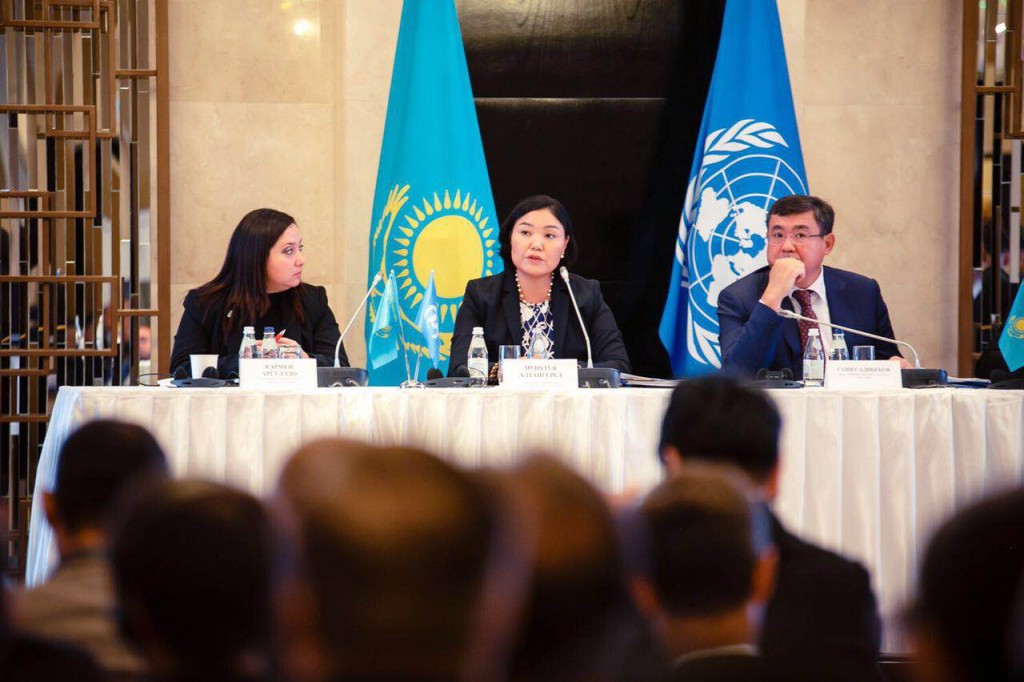ASTANA – Avenues of cooperation between Kazakhstan and the Green Climate Fund (GCF) were discussed at a Sept. 6 seminar hosted by the UNDP and the Ministry of Energy of Kazakhstan in Astana, during which GCF representatives presented detailed information on the possibilities.
“Kazakhstan has undertaken the ambitious goal of reducing greenhouse gas emissions,” said Vice Minister of Energy Gani Sadibekov at the seminar. “Implementation of this goal entails a structural transformation of the economy, including large-scale and technological modernisation. This requires an active search and attraction of investments to the state. Activities with the GCF through accredited agencies such as the UNDP will enable us to mobilise resources to execute orders by President Nursultan Nazarbayev.”
“UNDP, as a long-term partner of Kazakhstan, contributed to the development of the Concept for Kazakhstan’s Transition to a Green Economy. The new UNDP agenda is aimed at achieving sustainable development goals and supporting Kazakhstan’s transition to a green economy by facilitating strategic partnerships with key national and international financial organisations, including the Green Climate Fund. Interaction between Kazakhstan and the GCF will allow Kazakhstan to launch transformation mechanisms for its economy,” said Deputy Resident Representative of the UNDP in Kazakhstan Munkhtuya Altangerel.
Speakers at the seminar discussed the new situation in the world economy, which requires all companies in the world to adapt to the effects of climate change. All of them agreed that there is growing pressure on the international business community to introduce new, low-carbon technologies and to decrease gas emissions. Implementation of big investment projects are obligatory under the Paris Climate Agreement. Introducing innovative systems and new technologies to decrease environmental impacts were discussed as well.
Sadibekov noted that Kazakhstan joined the Paris Agreement in August. The country’s national commitments are to decrease greenhouse gas emissions, with a conditional target of 15 percent and an absolute target of 25 percent of emissions of 1990 levels.
He also named priorities for future cooperation with the fund and highlighted that attracting investments to climate change adaptations, managing risks against adverse impacts and natural hazards, transferring technology for the development of clean energy and improving the ecological situation in the country will be the most important goals.
Kazakhstan has already taken some steps, such as adopting the Kazakhstan 2050 Strategy and the Concept for the Transition to a Green Economy. The state expects to receive up to $250 million from the GCF for the development of green technologies in its single-industry towns.
Diplomats and representatives of UN agencies, different ministries, the business sector and international organisations took part in the seminar.
The GCF is the largest financial mechanism specifically established to help developing countries prevent and adapt to climate change. The fund is supported by 194 governments.


